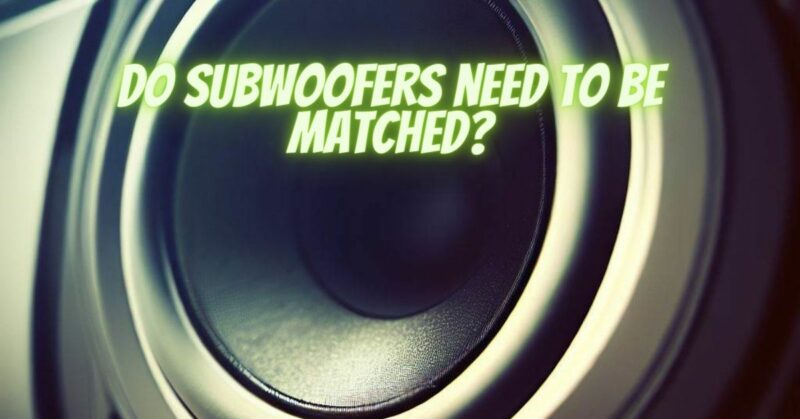The answer to this question depends on a few factors, including the type of subwoofers you have, the size of the room you are listening in, and your personal preferences.
In general, it is not necessary to match subwoofers if they are of the same brand and model. However, if you are using subwoofers of different brands or models, it is a good idea to match them as closely as possible. This will help to ensure that the subwoofers produce a smooth, even bass response.
There are a few things to consider when matching subwoofers:
- The frequency response: The frequency response is a measure of how well the subwoofer can reproduce different frequencies of sound. Subwoofers with a similar frequency response will produce a more consistent bass sound.
- The sensitivity: The sensitivity is a measure of how loud the subwoofer will be for a given amount of power. Subwoofers with a similar sensitivity will be easier to power and will produce a more consistent bass sound.
- The power handling: The power handling is a measure of how much power the subwoofer can handle. Subwoofers with a similar power handling will be less likely to distort when played at high volumes.
If you are not sure whether or not you need to match your subwoofers, it is always best to consult with a professional.
Here are some additional tips for matching subwoofers:
- Read the subwoofers’ specifications: The subwoofers’ specifications will tell you the subwoofers’ frequency response, sensitivity, and power handling ratings.
- Listen to the subwoofers together: Listen to the subwoofers together to see if they sound similar.
- Experiment with different settings: Experiment with different settings, such as the crossover frequency and the volume levels, to see what sounds best to you.


